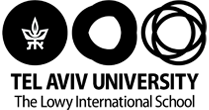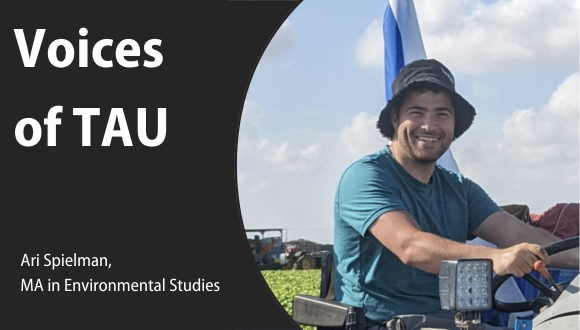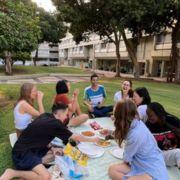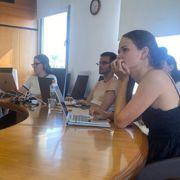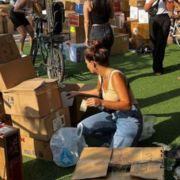From Social Activism to Environmental Discussions
Ari Spielman on his momentous year in Israel
In his interview, Ari Spielman, a recent graduate of the MA Environmental Studies international program, describes how his experiences at TAU have shaped his academic and personal growth.
Why study in Israel?
Before enrolling at TAU, I had visited Israel multiple times. These visits deepened my appreciation for the country's rich history, culture, and unique geographical features.
Experiencing Israel first-hand allowed me to see the environmental challenges and innovative solutions being developed, further fueling my passion for environmental studies and my desire to study at TAU.
Why Tel Aviv University?
I chose Tel Aviv University because it is a leading global institution. The university's interdisciplinarity aligned perfectly with my academic goals, promising to enhance my development not only in environmental studies but across various skill sets that extended beyond my initial expectations.
Coming from the United States, the affordability and accelerated timeline for the degree was also a plus.
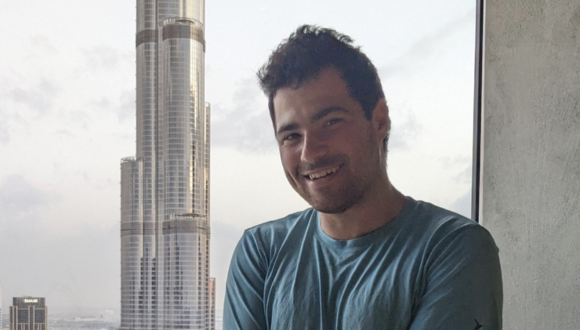
Being able to live in the city and be close to both the university and the beach let me have a great life-work balance that fits within the unique Israeli lifestyle.
Why Environmental Studies?
My decision to pursue an MA in Environmental Studies at TAU stemmed from my commitment to the well-being of our planet. This program offers a great blend of theoretical and practical knowledge, which is crucial for understanding and addressing complex environmental challenges.
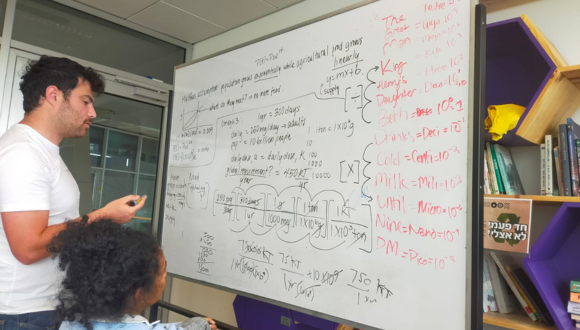
Israel's strategic placement in the heart of the Middle East renders it an essential center for comprehending and tackling climate change. Israel has been at the forefront of water technology for decades and has gone from a water-deficient country to a water exporter.
Residing in the coastal city of Tel Aviv exposed me first-hand to challenges affecting our oceans, and just within proximity lies the Negev desert where specialists research water crisis-solving technologies.
The country's unique geopolitical situation offers an invaluable first-hand encounter with the climate crisis. It teaches us how to problem-solve through international cooperation and local innovation.
How did the events of October 7th affect the studies?
October 7th was incredibly hard for the entire country, but it also had a lasting effect on students. School was canceled for months for Israelis as well as most of my own courses.
During this time, I was able to get involved in volunteering, many of these opportunities offered through Tel Aviv University.
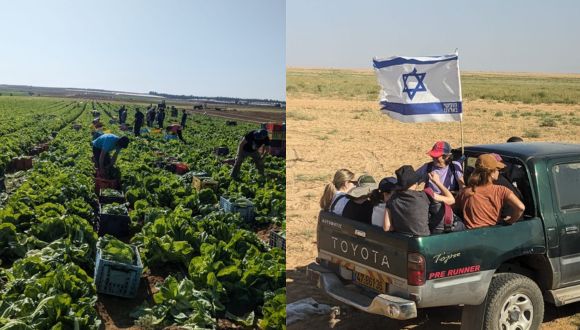
TAU international students volunteering at a farm
Every week for around two months, students, and teachers would sign up for trips down to the Gaza border communities and volunteer doing farm work. It gave them something productive to be involved in, instead of feeling helpless.
I had many important conversations on these trips with fellow students and teachers.
I also was able to get involved in volunteering with students from the Film school, with the Film Bus which usually shows movies across the country during the run-up to Tel Aviv University’s International Student Film Festival. Along with other students, we went weekly to different locations around central Israel and showed movies for displaced families.
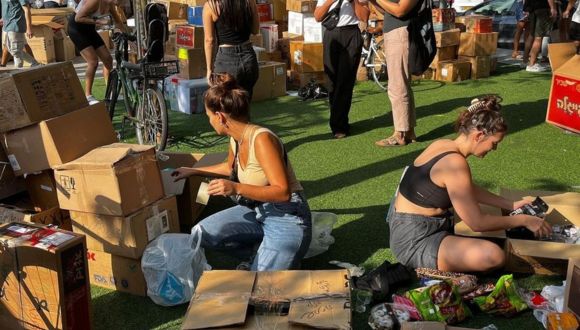
Volunteers packing supplies for Operation Manna. Credit: Operation Manna
I met other international students at the beginning of the war while volunteering for a supply collection drive on campus with the Student Union.
Together with other students, we formed Operation Manna–a non-profit with the goal of raising money and then distributing direct aid to displaced people.
We also became involved in activism for the hostages, and continue to find opportunities to contribute to the rebuilding of these impacted communities.
What is studying at TAU like?
The program has been incredible. The cohort of other students in my program come from around the world and all are incredibly talented and passionate individuals who care deeply about the issues we learnt about. Having conversations between classes on our “green roof” was always a fun time.
The teachers in the program are knowledgeable and really want us all to succeed not only academically but in our future professions.
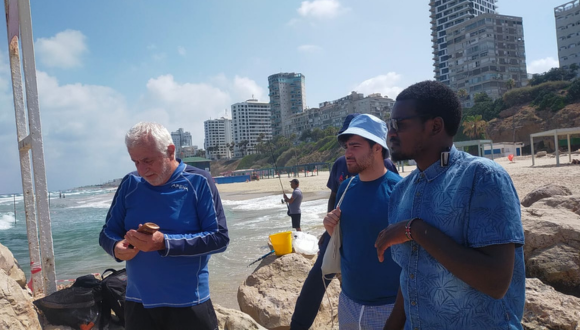
One interesting course I have taken was Transboundary Water Diplomacy, taught by Dr. Clive Lipchin, director of the Center for Transboundary Water Management at the Arava Institute.
The course, taught by an expert in the field, showed the kind of unique work being done in Israel and helped fuel my interest in water diplomacy.
Another interesting course was my fall semester seminar class, that was a partnership with Engineers Without Borders and Mount Kenya University. In the class, we helped continue the work on a project in Kenya started by the previous seminar group.
The project helped create a school program in a rural Kenyan community where students would learn to grow a highly nutritious microalgae called Spirulina that can be used to help supplement diets.
We individually planned research proposals, and two of the students in the seminar were even able to travel to Kenya to meet the students and work on their research plans. The partnership was an incredibly unique learning experience.
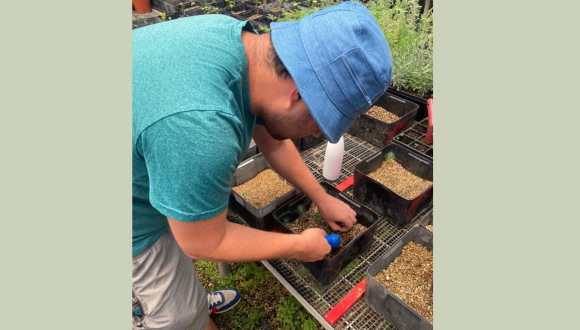
Finally, the weekly colloquiums we had are one of my favorite things as a student.
The whole Porter school, Israeli and international students, all go into the main lecture hall, where we hear from different expert lecturers on their individual topics.
I learned so many different interesting perspectives, and since the only grade you get is based on attendance, you can focus on just learning for learning's sake.
What about student life at TAU?
The new Lowy International School location at the Green House next to the Broshim dormitories is a great space that is able to hold many different events. My favorite things to attend were cultural events such as the Chinese New Year and a Ramadan Iftar.
One of my favorite memories during the early days of the war was attending a Thanksgiving Dinner.
The event was held in a student event space underground that also doubled as a bomb shelter so it was safe to have a larger amount of people gathered. I had begun to feel homesick, since I had not left the country since the beginning of the war, and I did not know if I would be able to have a Thanksgiving meal.
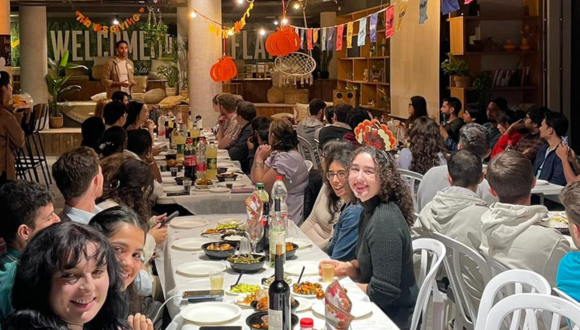
Thanksgiving dinner at the dorms
The event was amazing, and the room was as stuffed with people as we all were after eating the great food, including two giant roasted turkeys, that I was able to help cut.
I’ve also attended multiple tours around the city, including Yaffo and the Levinsky market. These tours have shown me unique and often underlooked things I missed on individual visits.
Applications for 2024-25 are still open.
Submit your application online to join the next cohort of environmental change leaders. Studies start November 3, 2024.
